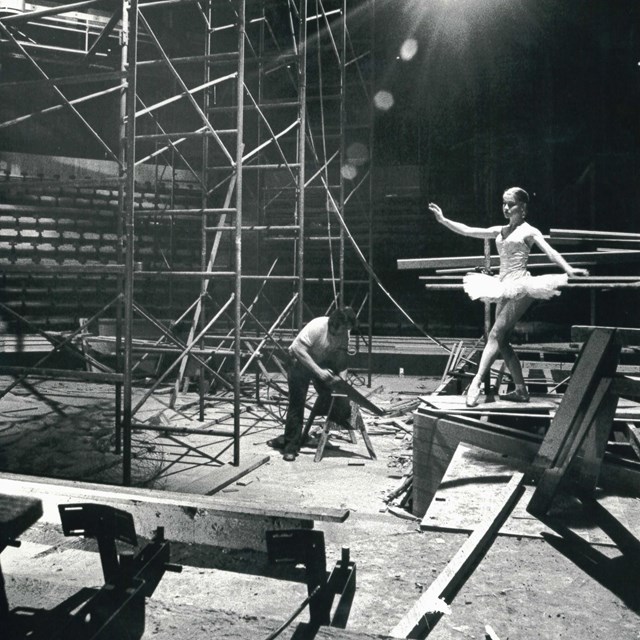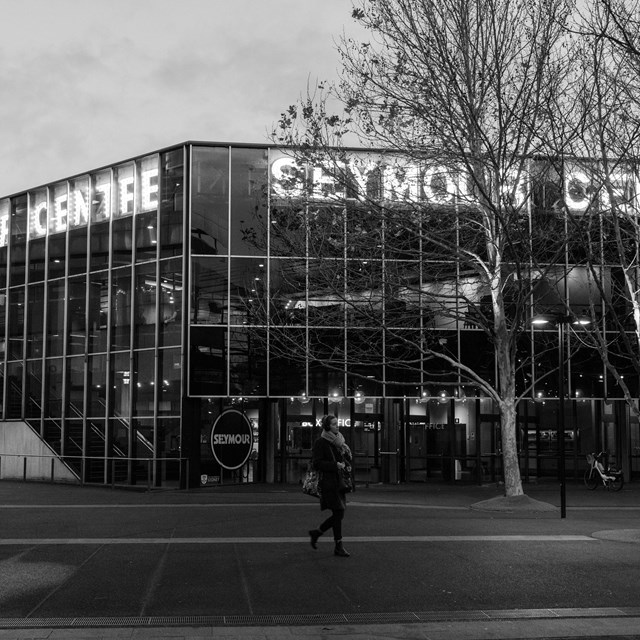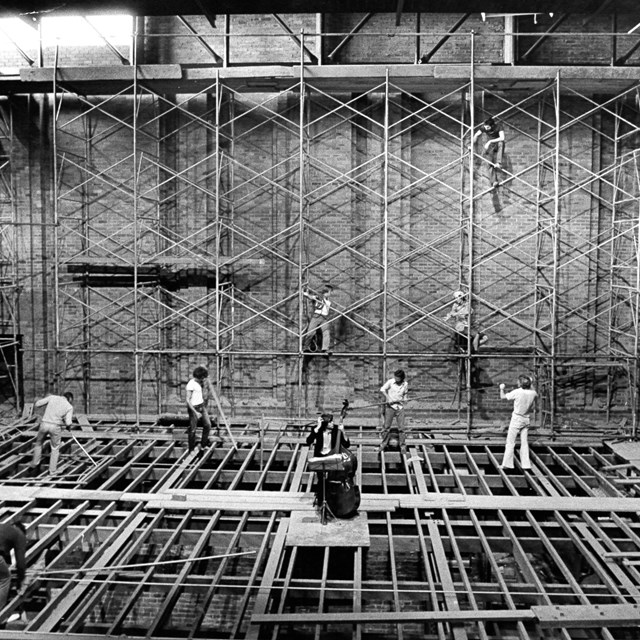A note from the CAMP rehearsal room
Go behind the scenes with director, Kate Gaul
As a new play, CAMP is still evolving as a text, but while we get to know the characters and world of the play, there is plenty to do in creating the physical language of the production.
Movement director, Emily Ayoub, is developing the way in which we move from one scene to the next. The play is a series of short scenes or snapshots—certainly to begin with—and to capture the energy and momentum of the activism in 1970s Australia, I imagined the company working in heightened gestures and fluid movement, and building images of protest and celebration—just as starters!
We have a wealth of historical documentation in the form of photographs and TV clips, now on YouTube, to draw from. The 1970s was a tumultuous time in Australian history, and it spurred a Pride movement that gathered momentum in every state.
A backdrop of violence and uncertainty frames the first part of the play, which taps into the energy and imagination of the 1970s and spotlights the birth of the Campaign Against Moral Persecution (CAMP). Four fictional activists—Krissy, Jo, Tracy, and Dave—fall in love, fall out of love, find their individual voices, and forge paths spanning five decades.
In 2022, Krissy, Jo, and Tracy reconnect, and through personal and political challenges that tinge the second part of the play, these characters acknowledge their differences as they interrogate a world that is, frighteningly, not too far removed from the decade of their youth.
It’s a great world to explore, and the cast of incredible storytellers relish the challenge of a new play and the vibrancy of this epic history.
As we now approach week three of rehearsal, the team knuckles down to get the work staged, and to think through how the technical elements of lights, sound, and costume can support the storytelling and aesthetic.
How do we strengthen the forces that challenge and block the activists? How will we use TV recordings of the period to build the world? And what’s the genius behind getting those 1970s flares just right?
The play’s essential focus is the legacy of the brave men and women who fought for equality. The action takes us to the first Mardi Gras in 1978—the joy, the celebration, and the police violence and arrests.
But that isn’t where we end. I am looking forward to shaping the play’s final scenes to create a thoughtful journey for audiences as we all look to the future.
Kate Gaul
Director, CAMP
27 January 2023
CAMP plays 15 February to 4 March. Buy tickets now.
Image credit: Alex Vaughan
Journey to the punk lands of the 1970s and the birthplace of Australia's fierce gay rights movement in CAMP, written by Elias Jamieson Brown and directed by Kate Gaul. Plays 15 February to 4 March.
Buy ticketsAs a new play, CAMP is still evolving as a text, but while we get to know the characters and world of the play, there is plenty to do in creating the physical language of the production.
Movement director, Emily Ayoub, is developing the way in which we move from one scene to the next. The play is a series of short scenes or snapshots—certainly to begin with—and to capture the energy and momentum of the activism in 1970s Australia, I imagined the company working in heightened gestures and fluid movement, and building images of protest and celebration—just as starters!
We have a wealth of historical documentation in the form of photographs and TV clips, now on YouTube, to draw from. The 1970s was a tumultuous time in Australian history, and it spurred a Pride movement that gathered momentum in every state.
A backdrop of violence and uncertainty frames the first part of the play, which taps into the energy and imagination of the 1970s and spotlights the birth of the Campaign Against Moral Persecution (CAMP). Four fictional activists—Krissy, Jo, Tracy, and Dave—fall in love, fall out of love, find their individual voices, and forge paths spanning five decades.
In 2022, Krissy, Jo, and Tracy reconnect, and through personal and political challenges that tinge the second part of the play, these characters acknowledge their differences as they interrogate a world that is, frighteningly, not too far removed from the decade of their youth.
It’s a great world to explore, and the cast of incredible storytellers relish the challenge of a new play and the vibrancy of this epic history.
As we now approach week three of rehearsal, the team knuckles down to get the work staged, and to think through how the technical elements of lights, sound, and costume can support the storytelling and aesthetic.
How do we strengthen the forces that challenge and block the activists? How will we use TV recordings of the period to build the world? And what’s the genius behind getting those 1970s flares just right?
The play’s essential focus is the legacy of the brave men and women who fought for equality. The action takes us to the first Mardi Gras in 1978—the joy, the celebration, and the police violence and arrests.
But that isn’t where we end. I am looking forward to shaping the play’s final scenes to create a thoughtful journey for audiences as we all look to the future.
Kate Gaul
Director, CAMP
27 January 2023
CAMP plays 15 February to 4 March. Buy tickets now.
Image credit: Alex Vaughan
Journey to the punk lands of the 1970s and the birthplace of Australia's fierce gay rights movement in CAMP, written by Elias Jamieson Brown and directed by Kate Gaul. Plays 15 February to 4 March.
Buy tickets







